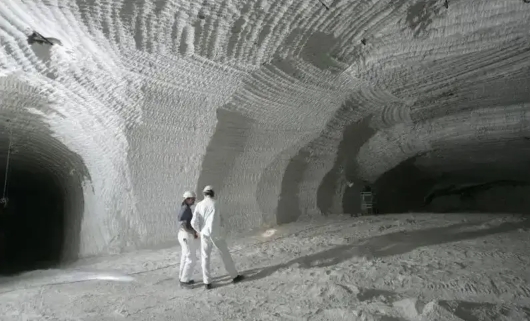
“Salt caverns offer particularly great potential for the long-term storage of large quantities of hydrogen,” the BMWK stated in a press release. These underground cavities, formed by dissolving salt with water, are already widely used for natural gas storage and are technically suitable for hydrogen with minimal adaptation. The white paper emphasizes their reliability and scalability to support Germany’s hydrogen strategy.
In contrast, the ministry has decided against further exploration of porous rock formations, primarily located in southern Germany, due to significant technical uncertainties. This decision has sparked concerns among scientific and industry stakeholders, as reported by Tagesspiegel Background. Experts argue that excluding porous rock storage could limit storage options in the energy-intensive southern region, potentially creating regional imbalances in hydrogen infrastructure.
Germany currently operates 47 natural gas storage sites, with two-thirds utilizing salt caverns and the remaining third relying on porous rock formations. None of the porous rock sites have been adapted for pure hydrogen storage. The white paper projects a significant rise in hydrogen storage demand, from 2–7 TWh in 2030 to 76–80 TWh by 2045, driven by the country’s commitment to climate neutrality. Green hydrogen, produced using renewable energy, is expected to be a cornerstone in decarbonizing industrial processes and providing seasonal energy storage.
The BMWK’s strategy underscores the role of hydrogen in achieving sustainable energy goals, with salt caverns positioned as a key asset. By leveraging existing infrastructure and favorable geology, Germany aims to build a robust hydrogen storage network to support its energy transition.